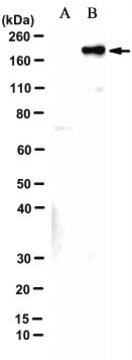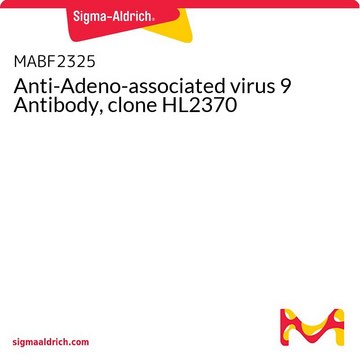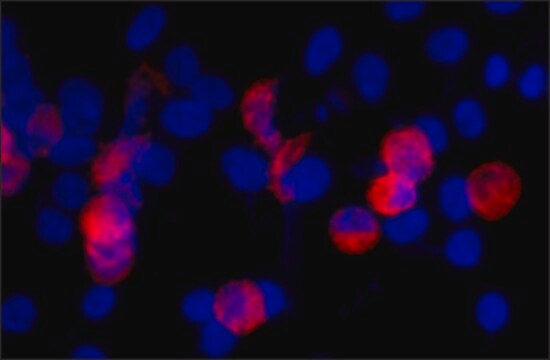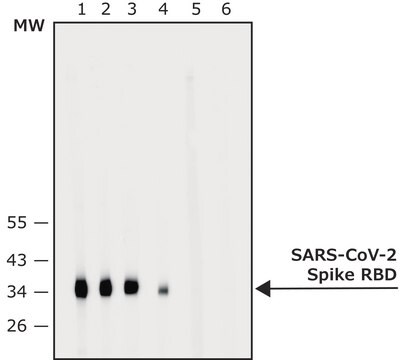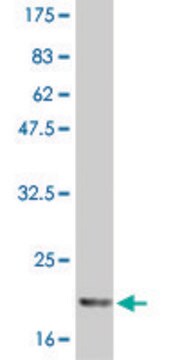MABF3090
Anti-SARS-CoV-2 Spike N501Y Antibody, clone 6D4-E2
Synonyme(s) :
S glycoprotein Alpha N501Y, Spike glycoprotein Alpha N501Y
About This Item
Produits recommandés
Source biologique
mouse
Niveau de qualité
Forme d'anticorps
purified antibody
Type de produit anticorps
primary antibodies
Clone
6D4-E2, monoclonal
Poids mol.
calculated mol wt 141.18 kDa
observed mol wt ~200 kDa
Produit purifié par
using protein G
Espèces réactives
virus
Conditionnement
antibody small pack of 100 μL
Technique(s)
immunoprecipitation (IP): suitable
western blot: suitable
Isotype
IgG1κ
Séquence de l'épitope
N-terminal half
Numéro d'accès UniProt
Température de stockage
2-8°C
Informations sur le gène
vaccinia virus ... S(43740568)
Spécificité
Immunogène
Application
Evaluated by Western Blotting in lysate from HEK293T cells transiently transfected with SARS-CoV-2 spike B.1.351, beta.
Western Blotting Analysis: A 1:500 dilution of this antibody detected SARS-CoV-2 spike protein with N501Y mutation in lysate from HEK293T cells transiently transfected with SARS-CoV-2 spike B.1.351, Beta, but not in wild-type HEK293T cells.
Tested Applications
Western Blotting Analysis: A representative lot detected SARS-CoV-2 spike N501Y in HEK293T transiently transfected with various SARS-CoV-2 variants (Data courtesy of Stefan Schüchner and Egon Ogris (Max Perutz Labs, Medical University of Vienna, Austria).
Immunoprecipitation Analysis: A representative lot detected SARS-CoV-2 spike N501Y in Whole cell lysates of HEK293T cells (untransfected or transiently transfected with SARS-CoV-2 spike WT or B.1.351 variant) (Data courtesy of Stefan Schüchner and Egon Ogris (Max Perutz Labs, Medical University of Vienna, Austria).
Note: Actual optimal working dilutions must be determined by end user as specimens, and experimental conditions may vary with the end user
Description de la cible
Forme physique
Reconstitution
Stockage et stabilité
Autres remarques
Clause de non-responsabilité
Vous ne trouvez pas le bon produit ?
Essayez notre Outil de sélection de produits.
Code de la classe de stockage
12 - Non Combustible Liquids
Classe de danger pour l'eau (WGK)
WGK 1
Point d'éclair (°F)
Not applicable
Point d'éclair (°C)
Not applicable
Certificats d'analyse (COA)
Recherchez un Certificats d'analyse (COA) en saisissant le numéro de lot du produit. Les numéros de lot figurent sur l'étiquette du produit après les mots "Lot" ou "Batch".
Déjà en possession de ce produit ?
Retrouvez la documentation relative aux produits que vous avez récemment achetés dans la Bibliothèque de documents.
Notre équipe de scientifiques dispose d'une expérience dans tous les secteurs de la recherche, notamment en sciences de la vie, science des matériaux, synthèse chimique, chromatographie, analyse et dans de nombreux autres domaines..
Contacter notre Service technique